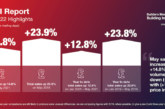
David Johnson, partner and head of the construction practice at law firm Boodle Hatfield, looks at the payment provisions of the JCT building contracts.
After months of negotiation we were optimistic that we were making some progress with the final account under a JCT contract. The contractor had agreed sensible figures for a number of controversial items, and this is confirmed in correspondence. However, whilst our contract administrator was on holiday, the contractor put in an application for payment in which he reverted to his original inflated values. In the contract administrator’s absence, no interim certificate or payless notice was issued. The contractor is now demanding payment of his inflated application in full, and is threatening adjudication. Do we have to pay?
A number of adjudication decisions on this point have been considered by the courts and there have been many attempts to persuade the courts that adjudication decisions requiring the payment of inflated applications should not be enforced.
The courts have consistently taken the view that only in very limited circumstances will they refuse to enforce an adjudicator’s decision that the full amount of the contractor’s application is payable. The reasoning behind this is that an adjudicator’s decision is not final and the underlying dispute, as to valuation of the works, will therefore either be resolved in final account negotiations or will alternatively be re-opened in arbitration or litigation, and any overpayment will then be repaid.
Insolvency
The main exception to this is where the contractor is insolvent, as the courts accept that there would then be a real risk that the employer would not be able to recover the overpayment.
However, where a contractor’s inflated application includes sums for items of work which the contractor has already conceded are not due, or for which a lower sum has been agreed in final account negotiations, there may be a possible argument based on the wording of the contract. Clause 4.11.1 of the JCT Contract provides that the application must state “the sum that the Contractor considers will become due to him at the relevant due date”. The argument would be that the contractor cannot “consider” an amount is due when he has already agreed that it is not due, and that the application therefore does not comply with the contract.
Theft Act
So far as I am aware, this particular argument has not been tested in the courts. However, section 17 of the Theft Act 1968 may also be relevant. It is a criminal offence for a person, with a view to gain or with intent to cause loss, to falsify any account or any document required for any accounting purpose, or to produce or use an account or document which he knows may be misleading, false or deceptive.
Any contractor who includes amounts that he has agreed are not due in an application for payment places himself in jeopardy under this provision.
David Johnson is a partner and head of the construction practice at law firm Boodle Hatfield. He can be reached by email: djohnson@boodlehatfield.com. Visit www.boodlehatfield.com for more information.








